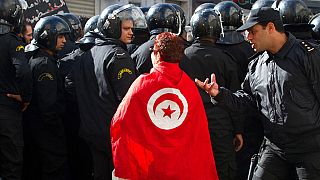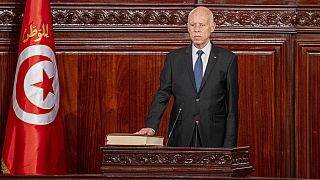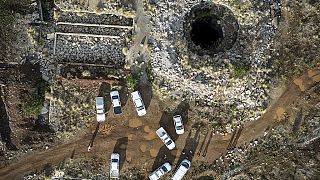Tunisia
Many Tunisian Muslims are complaining they can no longer afford to buy sheep for sacrifice, whereas consumption of traditional sweets has fallen, as an economic crunch and high prices prevent customers from splashing out on food ahead of Eid al-Adha, or Feast of Sacrifice, which begins on June 28.
"We've asked the mufti of the Republic to cancel this year's Eid [Feast of Sacrifice], as there isn't enough [meat] production. We can only cover half the demand, given that we only have 650,000 [sheep], nor 1,1 million or 1,2 million [sheep]. In addition, prices are very high. Who should bear the responsibility for this?" said Ahmed Laamiri, the president of the national butchers union.
Inflation, which is approaching 10%, is also reflected in the rising prices of traditional cakes and pastries, which are usually highly prized at the time of weddings and end-of-year university ceremonies, among other festive occasions.
This year, like so many other consumer products, the price of "sacrificial" mutton has risen to at least 1,000 dinars (300 euros), more than double the minimum wage in this Maghreb country.
"The [price of] sheep is between 1,500 and 600 dinars [468 euro/177 euro). And the very high cost of hay pushes up the price of sheep considerably, which in turn impacts the consumer's purchasing power," said Fathi Dhifaoui , a sheep seller.
Tunisia's financial crisis is reflected in chronic shortages of basic foodstuffs, against a backdrop of high political tensions since President Kais Saied seized full power in July 2021, rocking the democracy born of the first Arab Spring revolt in 2011.
Tunisia, indebted to the tune of 80% of its GDP, obtained an agreement in principle from the International Monetary Fund (IMF) in October for a loan of nearly $2 billion, but discussions have since stalled for lack of a firm commitment from the country to implement a reform program.





![New era of sovereignty in Mali's gold sector [Business Africa]](https://static.euronews.com/articles/stories/08/77/73/76/320x180_cmsv2_04bbdd41-5576-5c9e-9bd3-f09c391cff64-8777376.jpg)







11:07
The economy, the challenge of Kaïs Saïed's second term [Business Africa]
01:30
Saied's supporters gather in celebration ahead of official results
01:38
Analyst ponders if Tunisia's president can secure second term in Sunday's election
01:04
Tunisia passes law to strip courts of power over election authority
01:28
Tunisia to take on Madagascar in first AFCON 2025 qualifier
01:00
Tunisia's election: only two candidates to contest Saied